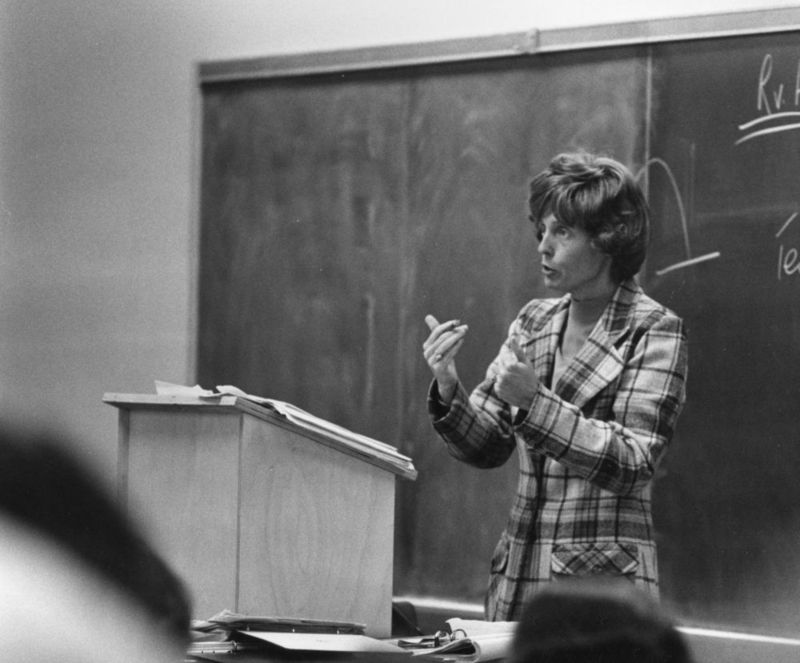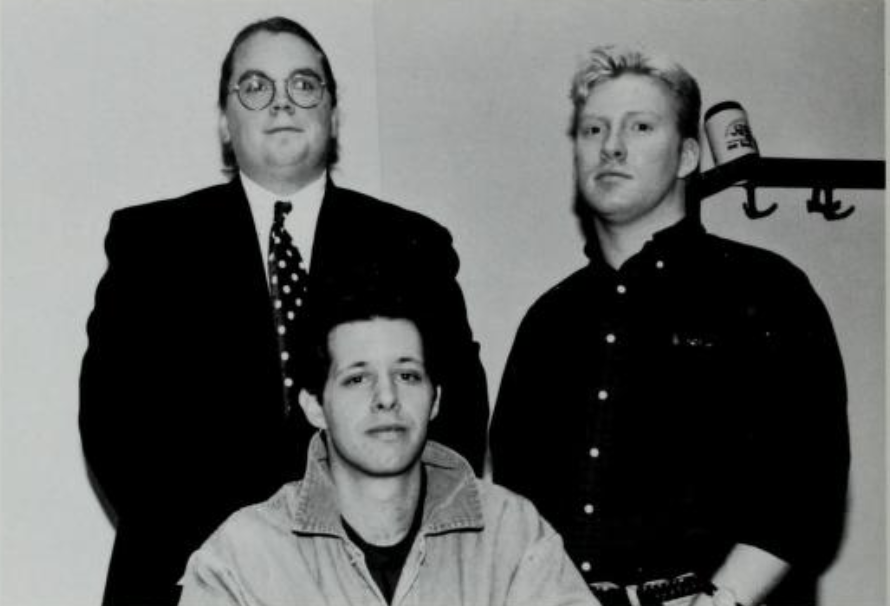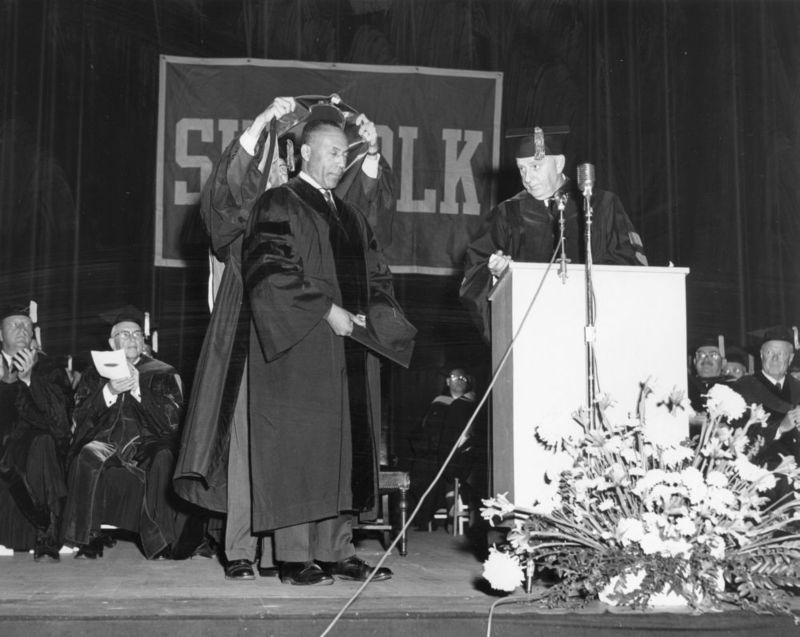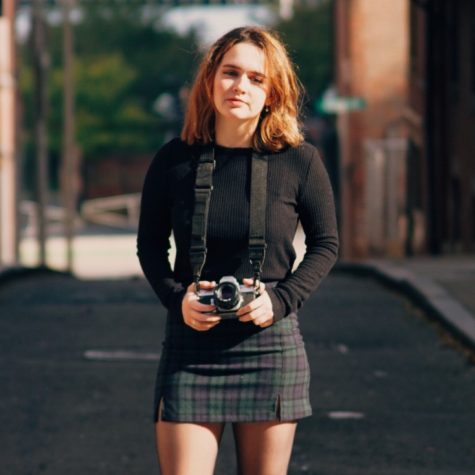In the fourth part of this four-part series, which will come out in April, The Journal will celebrate Suffolk’s LGBTQ+ history in honor of Suffolk’s LGBTQ+ History Month.
For Women’s History Month, The Suffolk Journal is honoring past female Suffolk University graduates and faculty who have paved the way for women at the university, and in traditionally male-dominated careers.
When Gleason Archer founded Suffolk in 1906, he wanted to give the opportunity of higher education to those who were usually denied it. Despite this, he denied admission to female students for the first 27 years of the Suffolk Law School.
According to Suffolk lore, Marian Archer MacDonald, Archer’s daughter, changed that forever. MacDonald made a deal with her father that if she graduated from his law school, he would allow other women to attend.
“It was (Archer’s) great ambition to have his daughter be the first (female graduate). She followed her father’s wishes although she never had any interest in practicing law,” MacDonald’s first husband, Paul A. MacDonald, wrote in his memoir “Recollections of the Late Years, 1932-1994.”
In his book titled “Suffolk University,” David Robbins said MacDonald’s success convinced her father to grant other
women admission into the school. However, it is unclear if this is what had actually happened.
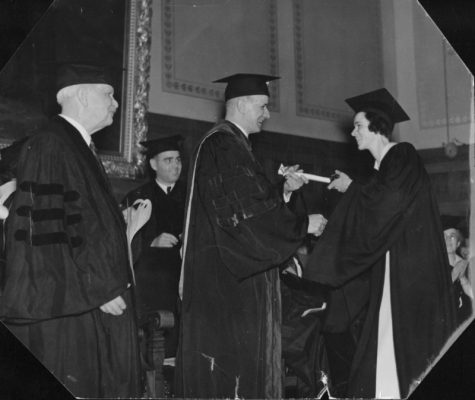
What is known is that McDonald was admitted to Suffolk Law in 1933. When she graduated in 1937 (the year Amelia Earhart went missing during her attempt to become the first woman to fly around the world) she became the first woman to graduate from Suffolk Law.
The second female law graduate was Emma M. Cumming. Graduating in 1942 (the same year the Women’s Auxiliary Army Corps was created during World War II), Cumming was the only woman in her class. She received the second-highest class honors when she graduated.
Cumming became a member of the federal, Massachusetts and Rhode Island bar associations. She was admitted to practice law before the U.S. Supreme Court in 1947.
Leila Lister Maynard became the first female valedictorian in 1943, the year after Cumming graduated.
In 1958, Jeanne M. Hession became the first female class president of the Law School. After graduating, Hession became the first female Suffolk University Trustee in 1973 (the year Roe v. Wade was ruled on in the U.S. Supreme Court). She served as the vice-chair on the Board of Trustees from 1976 – 1996, making her the first woman to serve as a corporate officer at Suffolk.
The first female editor-in-chief of The Suffolk Journal was Kuni Kreutel, who worked as the editor from 1958 – 1959. During her time at The Journal, the paper wrote an article on Hession when she became the first female class president. Kreutel’s first edition as editor came out in October 1958, which included an editorial she wrote on how “a college newspaper should be vocal, but not vociferous.”
Charlotte Anne Perretta received her J.D. from Suffolk in 1967 (the year American suffragist Kathrine Dexter McCormick, who funded research to develop the first birth control pill during the 1950s and 1960s, died). Perretta became the first female associate justice in the Massachusetts Appeals Court in 1978.
At the time, Perretta attained the highest state judicial appointment a Suffolk Law graduate — male or female — had ever received. Perretta then served as the senior associate justice at the Appeals Court from 2003 (the year Greta Thunberg was born) until 2009. She died in 2015 at age 72.
Patricia McGovern received a B.A. from Suffolk in 1962, and her J.D. in 1966. She would go on to become the first woman to serve as chair of the Massachusetts Senate Committee on Ways and Means in 1985.
Linda Stewart Dalianis, who received her J.D. from Suffolk in 1974, was the first woman to be appointed to the New Hampshire Supreme Court in 2000. She was also appointed as Chief Justice of the New Hampshire Supreme Court in 2010. Some may recognize her name because she was the law school commencement speaker in 2018.
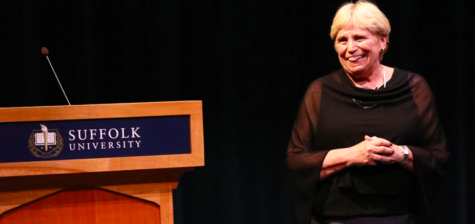
Suffolk University’s first female president, Margaret McKenna
In July 2015, Margaret McKenna became the school’s first female president. McKenna had started her career working for the U.S. Department of Justice as a civil rights attorney. Seven months after starting the position, McKenna stepped down as president over disagreements with the Board of Trustees, The Journal reported in 2016.
Mary Frances Pray was the Law School’s first female faculty member. She taught part-time from 1942 until 1952. The Law School’s first full-time female associate professor was Cathrine Judge, who began teaching at Suffolk in 1967. Judge became the school’s first full-time professor in 1972, and became the first woman to receive tenure at the university two years later.
Ella M. Murphy was the first female full-time professor of the College of Arts and Sciences. She taught English from 1948 – 1968 and was officially appointed to a full-time position in 1959. Jo Ann Renfrew worked in Business Administration from 1970 until 1973. She was the Sawyer Business School’s first full-time female faculty member.
During the 1970s, The Committee on the Status of Women at Suffolk published a report on life at Suffolk for women. The introduction of the 1975 report said the Committee was started “to investigate the prevailing attitudes and standards applied to women within the University,” and “the extent to which discriminatory practices restrict the advancement and the range of opportunities available both to women students and to employees at Suffolk.”
The Committee recommended that it be kept on to monitor the progress of the University. It was then discontinued after the report was published.


